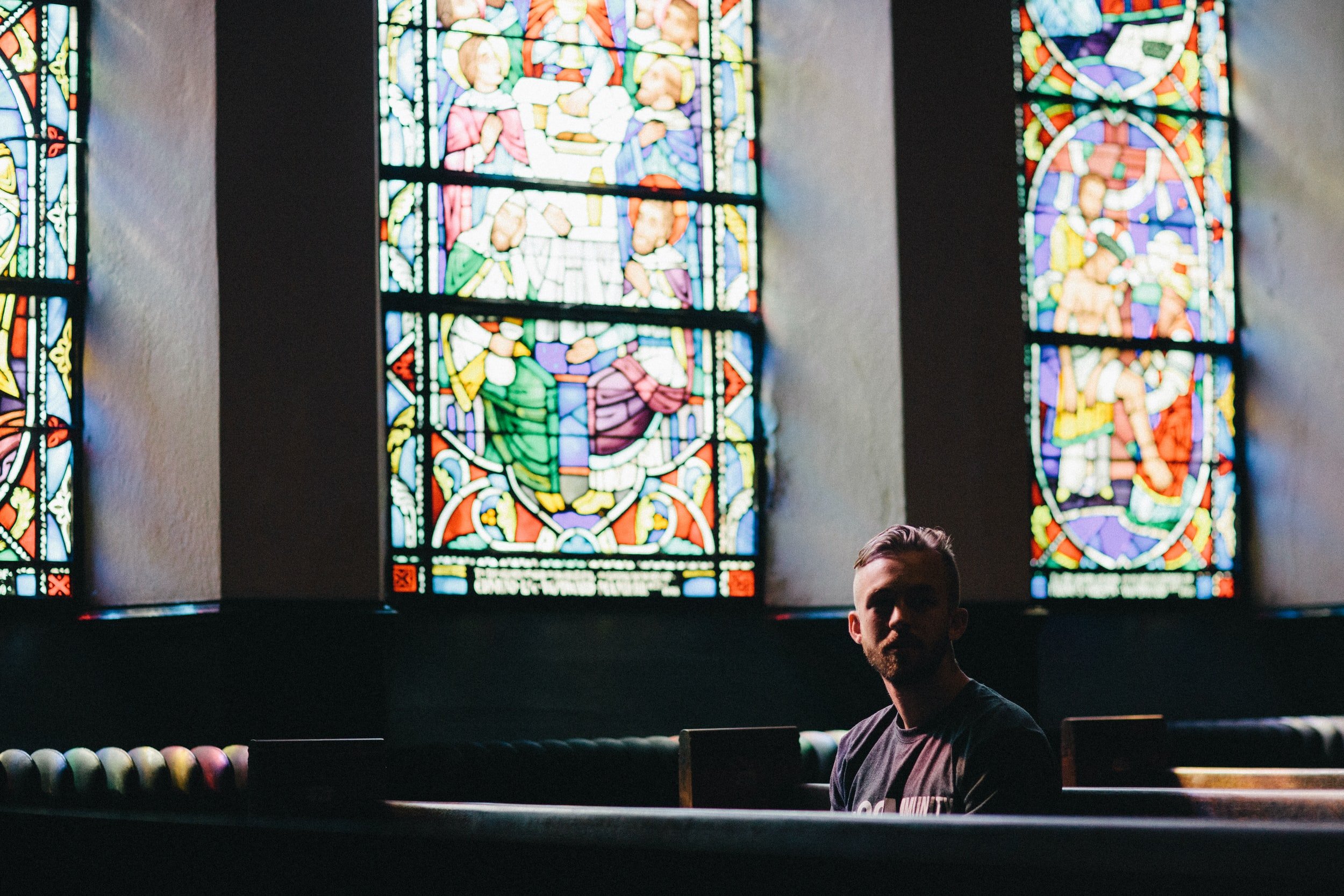A Review of Matthew Levering’s The Abuse of Conscience: A Century of Catholic Moral Theology
Matthew Levering is a well-accomplished Roman Catholic theologian. His books are well written and well researched. When he writes on a subject, you can be sure of its academic integrity. His most recent work, The Abuse of Conscience, is certainly no exception. With great attention and detail, he examines the role of the conscience in Catholic moral theology during the past century. His study is not limited to Roman Catholics alone, however, but includes the contributions of key Protestant theologians concerning the theology of conscience (such as Dietrich Bonhoeffer and Karl Barth), and also examines the contributions of certain philosophers to the study of the conscience and its role in morality.
Levering argues that the 20th century witnessed an “abuse of conscience,” meaning that Catholic moral theology “gave too expansive a place to conscience in the Christian moral life” (p. 1). This problem, according to Levering, was only worsened after the Second Vatican Council. He himself was trained in the 1990s within a Thomistic framework, meaning that while conscience was valued and had an important place in morality, it was not the center of the moral life. However, in post-Vatican II Roman Catholic moral theology the conscience has been given too central a role, and now too “easily and stubbornly takes over the whole terrain” (p. 11). Levering’s aim, therefore, is twofold: To introduce the main paths taken by Catholic moral theology in the twentieth century, and to expose the deficiencies of the dominant academic versions of conscience-centered Catholic moral theology (see p. 1).
In accomplishing his task Levering begins with an examination of conscience and the Bible. Based on his study of important and influential Catholic theologians who contributed to this topic - such as George Tyrrell, Rudolf Bultmann, and Yves Congar - Levering concludes that “the New Testament does not support conscience-centered morality” (p. 19). He then examines the moral manualists, but concludes that “we should not pattern Catholic moral theology upon them” (p. 82). This is because the manualists place the conscience at the center of moral theology, which is to be avoided. Being trained in a Thomist framework himself, Levering also examines the conscience according to the Thomists. The Thomists are to be appreciated for their emphasis on the relationship between the conscience and prudence (more on this later). Before concluding, Levering also examines many of the great German theologians and their contributions to the theology of conscience, such as Karl Barth, Karl Rahner, and Joseph Ratzinger. Levering argues that “the influence of twentieth-century German philosophers and theologians is difficult to overestimate” (p. 125). There was also the Nazi horror that influenced conscience-related thought, making the contributions of German theologians all the more interesting.
In his conclusion, Levering notes that “The tragedy of twentieth-century Catholic moral theology, in its academically dominant strands, is that it ultimately lacked the strength to overcome the strong cultural push toward sovereign subjectivity…Today, conscience-centered morality is largely a program of individual and collective liberation from universal moral norms and systems, in hopes that this will bring about sexual, social, and ecological justice.” (p. 206). According to Levering, the solution is removing conscience from its central role in moral theology. It certainly has its place, but its position in the moral theological framework ought to be limited to serving prudence and the virtues.
Much of what Levering says about conscience and its overemphasized and inflated place in moral theology is commendable. A proper reintegration of conscience into the moral theological framework is needed. But from an Evangelical perspective, the conclusions Levering reaches are not enough. This is not due to inadequacies on Levering’s part, but due to the Roman Catholic theological system within which he is operating. Conscience, concludes Levering, must be placed in the service of prudence and the virtues. In this way it is properly reintegrated into the moral theological framework. The Catechism of the Catholic Church defines prudence as “the virtue that disposes practical reason to discern our true good in every circumstance and to choose the right means of achieving it…Prudence is ‘right reason in action’, writes St. Thomas Aquinas” (CCC, 1806). This definition makes it clear why conscience and prudence are so closely related and why conscience serves prudence. In fact, prudence in the CCC is directly preceded by a discussion of conscience.
While Levering argues that Catholic moral theology has given too central a place to conscience, the Evangelical argues that Roman Catholic theology has given too much credit to the conscience’s natural ability. According to Roman Catholicism, the conscience is inherently, or naturally, good, and always leads us to do good and avoid evil. The Vatican II document Gaudium et spes affirms exactly this: “In the depths of his conscience, man detects a law which he does not impose upon himself, but which holds him to obedience. Always summoning him to love good and avoid evil, the voice of conscience when necessary speaks to his heart: do this, shun that. For man has in his heart a law written by God; to obey it is the very dignity of man; according to it he will be judged”(GS, 16).
This, however, seems to contradict clear teachings we find in Scripture. The Bible consistently presents mankind as a slave to sin, and indeed dead because of sin (Eph. 2:1,5; Rom. 6:11,23). He wants only to satisfy the desires of the flesh (Rom. 8:5-6). Man has no propensity whatsoever to seek what is good and right, and has no ability whatsoever to perceive the things of the Spirit. Indeed, they are foolishness to him (1 Cor. 2:14). Paul told the Romans in no uncertain terms being a slave to sin means that one is free from the obligation to live righteously (Rom. 6:20). Man is in darkness, does the deeds of darkness, and naturally prefers the darkness over the Light (Eph. 2:8,11). The message of the cross itself, upon which the Gospel is founded, is foolishness to those who are perishing (1 Cor. 1:18). How, then, can our conscience always summon us to love good and avoid evil?
Aside from being given too prominent a place in moral theology, the “abuse of conscience” for the Evangelical has this additional element. It has been given far too much credit for its ability to lead us to a deeper knowledge of God and to choose what is right over that which is wrong. This is clearly fruit of the Catholic Church’s teaching on nature, which gives it credit that Scripture does not permit. Levering writes that the moral framework, which includes conscience, must have “God and beatitude at the center, and thus with Christ and the grace of the Holy Spirit at the center, healing and elevating the powers of human nature in accord with God’s law” (p. 207). While this might sound good and nice, and while many evangelicals might nod their heads in agreement, this is when it is important to remember and understand the theological framework within which Levering is constrained to work. He cannot escape from it, no matter how nice and agreeable his words sound. The healing of human nature of which he talks assumes a human nature that was not devastated by sin, and that changes everything. It means that the grace of which he talks is dependent on God yes, but not on God alone, for human nature has the ability to seek God and do what is right. It is a symbiotic relationship. This, however, changes the Gospel entirely. It diminishes the redemptive and exclusive power of God’s grace alone, revealed through Scripture alone and made available through faith alone in Christ alone.
Careful attention must also be given to the Thomistic overtone of Levering’s conclusions. He represents and advocates for a more traditional understanding of Thomas that places conscience in the service of prudence and the other virtues. He criticizes the Vatican II understanding of conscience that gives it a far too central place in moral theology, while also claiming to be representative of Thomas. The Evangelical must understand that regardless of the view one takes on Thomas (traditional or Vatican II), both are rooted in an unbiblical understanding of human nature. Nature informs conscience, and conscience informs man and the decisions he makes. Again, however, Thomas (and Roman Catholicism) grants human nature, and in turn conscience, with abilities that Scripture not only doesn’t warrant, but contradicts. This is the real “abuse of conscience.”

